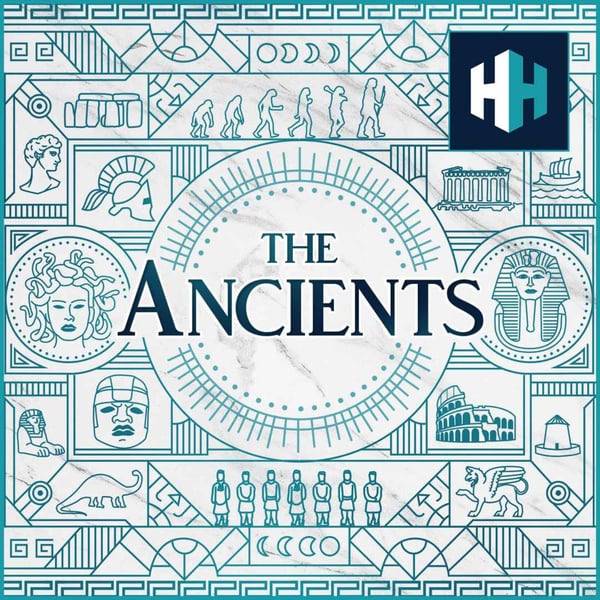The Ides of March
The Ancients
History Hit
4.7 • 3.5K Ratings
🗓️ 14 March 2021
⏱️ 48 minutes
🧾️ Download transcript
Summary
In 44 BC, the Ides of March took on a new significance. Previously observed as the first full moon of the new year, the 15 March is today remembered as the anniversary of the assassination of Julius Caesar. In this episode, Dr Emma Southon talks Tristan through the events leading up to the Caesar’s assassination: was he forewarned with omens in the days preceding his death? Who was involved in the plot and why did they want to kill him? Did Caesar really say 'et tu Brute?' And what of the more important 'other' Brutus? Emma tells the story of this momentous day.
Quick note: Caesar wasn't technically killed in the Senate House. He was killed in the senate meeting room, which at that time was held in the Curia of Pompey.
We also follow the theory that it was upon seeing Decimus Brutus, not Marcus Brutus, that Caesar gave up and stopped resisting his assassins. The debate continues!
Hosted on Acast. See acast.com/privacy for more information.
Transcript
Click on a timestamp to play from that location
| 0:00.0 | It's the entrance on History Hit. I'm interested in you as your host and in today's |
| 0:07.7 | podcast, well tomorrow is Monday the 15th of March. It's the I'd of March everyone. So |
| 0:13.6 | it's the anniversary of the assassination of Julius Caesar and that is the topic of |
| 0:18.7 | today's podcast. To talk through the assassination from the background to the murder itself to |
| 0:24.1 | its aftermath, why this is such a significant event in ancient Mediterranean history. I was |
| 0:29.9 | delighted to be joined by Dr. Emma Souther. Emma has written a couple of books including |
| 0:34.8 | one on Agrippina the Younger and more recently a book all about murder in ancient Rome called |
| 0:40.7 | a fatal thing happened on the way to the forum. Emma was a fantastic guest, brilliance |
| 0:45.9 | in talking through the assassination so without further ado, here's Emma. |
| 0:51.3 | Emma, thank you so much for coming on the podcast. Thank you so much for having me. It's |
| 0:56.6 | always a pleasure to talk about Julius Caesar. And especially at this time of year, I mean the |
| 1:00.4 | I'd of March 15th of March, it does seem to be this is the most famous date in the ancient |
| 1:06.2 | Mediterranean world. It is certainly the only one now where you will still get newspapers that do |
| 1:12.1 | articles about the I'd of March. Nobody's talking about any other date in Roman history these days, |
| 1:17.9 | but everybody knows the I'd of March and to be where it. Exactly to be where the I'd of March |
| 1:24.2 | as we're going to get into, but let's start with the background first of all. So let's go to the |
| 1:28.6 | start of 44 BC. So Emma, the end of the Civil War, Caesar, he's now back in Rome, but what's he |
| 1:36.7 | been doing? So Caesar has by 44 conclusively defeated everybody around him. He came back to Rome |
| 1:45.8 | after he had been governor of Gaul where he had beat them into submission and then been the first |
| 1:50.9 | Roman to properly go to Britain and show off their prowess there. And he had come back. People had |
| 1:58.2 | threatened to prosecute him. He didn't like that. So he marched on Rome in order to prevent it, |
| 2:04.6 | which the Senate was not expecting a tool. So Pompey and the Senate had had to flee and then Caesar |
... |
Please login to see the full transcript.
Disclaimer: The podcast and artwork embedded on this page are from History Hit, and are the property of its owner and not affiliated with or endorsed by Tapesearch.
Generated transcripts are the property of History Hit and are distributed freely under the Fair Use doctrine. Transcripts generated by Tapesearch are not guaranteed to be accurate.
Copyright © Tapesearch 2025.

